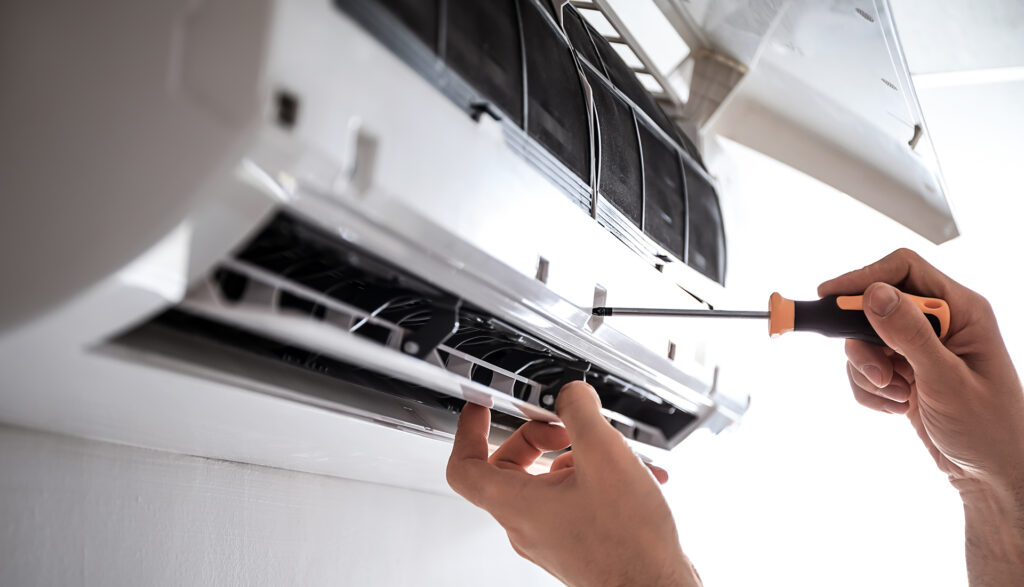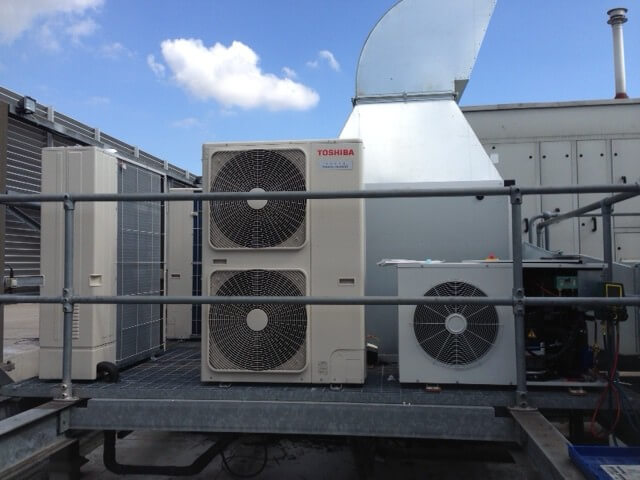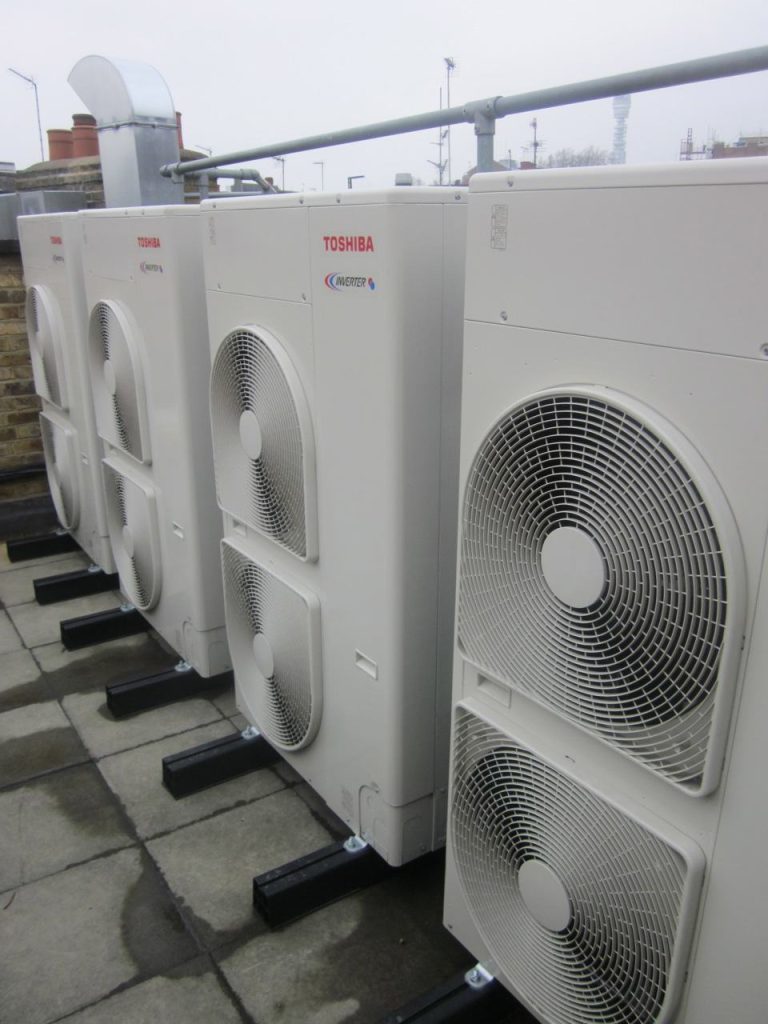Is Your Air Conditioning Ready For 2023, Predicted To Be One of the Hottest Years on Record?

Estimated reading time 11 minutes
As summer draws closer and we start to put the cold weather behind us, the promise of warm weather draws near, it’s important to make sure that your air conditioning, having come through the cold weather, is ready for the warmer summer months.
We know from previous years that British weather is unpredictable. From temperatures lows to temperatures highs, the weather and temperature can fluctuate wildly. In fact, according to the UK’s Met Office’s guest post “Met Office: A review of the UK’s climate in 2022” 2022 experienced “a prolonged spell of cold and snowy weather in December, one of the most significant cold snaps since December 2010” as well as being the warmest year on record with “a daily maximum temperature of more than 40°C and a national average temperature over the year of more than 10C” and “an abundance of temperatures well above their seasonal average” beating the previous temperature high of 38.7°C on 25 July 2019, in Cambridge University Botanic Gardens, Cambridgeshire.
The Met Office is predicting that 2023 “will be one of the Earth’s hottest years on record”, hotter than 2022, with the average “forecast to be between 1.08°C and 1.32°C (with a central estimate of 1.20°C) above the average for the pre-industrial period (1850-1900): the tenth year in succession that temperatures have reached at least 1°C above pre-industrial levels.”
Scientists are also predicting 2023 will see unprecedented heatwaves as El Niño, a climate phenomenon caused by winds and the temperatures in the Pacific Ocean that change from warming El Niño to cooling La Niña, will cause global “off the chart” temperature rises.
Why Indoor Temperature Control Is Important
With the ever-increasing temperatures in the UK and the prediction of heatwaves and off the chart temperatures likely to continue for years to come, being able to maintain indoor temperatures will become increasingly important for health and wellbeing.
Changes in temperature, especially heatwaves, can have a direct effect on health as they compromise the body’s ability to regulate its temperature. This loss of temperature control coupled with fluid and salt loss through sweating this puts more strain on our hearts and lungs and can result in heatstroke which includes confusion, seizures and loss of consciousness; heat exhaustion which can involve dehydration, muscle cramping, headaches, fatigue, feeling faint and fainting, dizziness and nausea; and hyperthermia (abnormally high body temperature) and cause health conditions such as respiratory disease, heart disease, cerebrovascular disease (affecting the blood vessels in the brain and cerebral circulation), and diabetes to worsen.
Several research papers, reports and articles have documented the effects of the hot summers and heat waves that are being experienced across the UK.
Articles published by various news outlets including The Wired’s “The science of why heatwaves are so dangerous to human health” have been flagging how heatwaves can trigger public health emergencies. They go onto say “There's plenty of scientific evidence that supports the fact that excess heat has deleterious effects on our health, causing everything from depression to heart attacks. For instance, the freak heatwave that hit Europe in the summer of 2003 — the hottest summer on record — claimed more than 70,000 lives, mostly older people, across the continent.”
According to the Lancet Countdown “The extreme heat in the UK and across Europe is threatening peoples’ health. Heat vulnerability in the UK has been steadily rising, with an ageing population and increase in underlying health conditions, and without adequate measures to adapt heat-related deaths are expected to rise to around 7,000 each year by the 2050s. Last summer, there were more than 1,600 excess deaths recorded during heatwave conditions in the UK, with 90 per cent of excess deaths observed in over 65-year-olds. Climate experts have consistently warned of increasing risk to life with a higher frequency of extreme heat events as the planet continues to warm.”
Executive Director of the Lancet Countdown Dr Marina Romanello explains: “The temperatures in England [have been] exceptional, posing a life-threating risk for many people in the UK. These rising temperatures show how climate change has become an existential threat. We cannot let extreme heat become the norm. Efforts to mitigate the changing climate must accelerate to protect health and prevent temperatures from rising beyond the bounds of a liveable future.”
An Imperial College London article “Climate change made UK heatwave more intense and at least 10 times more likely” highlights a study which found that human-caused climate change will increase the likelihood and severity of heatwaves in the UK faster and ten times more likely than predicted.
Dr Mariam Zachariah, Research Associate at the Grantham Institute - Climate Change and Environment at Imperial College London, who led the study said "Our lifestyle and infrastructure are not designed for prolonged exposure to such temperatures. These impacts are becoming more and more profound even with seemingly small increases in temperature.”
A Biomedical Central published paper “The health effects of hotter summers and heat waves in the population of the United Kingdom: a review of the evidence” shows that “all UK studies demonstrate an increase in heat-related mortality occurring at temperatures above threshold values, with respiratory deaths being more sensitive to heat than deaths from cardiovascular disease (although the burden from cardiovascular deaths is greater in absolute terms).” They found that the main populations who were the most vulnerable to heat, within the UK, were the older generation, those with certain simultaneous diseases and those living in Greater London and the South East.
The Red Cross’s report “Feeling the heat: a British Red Cross briefing on heatwaves in the UK” which looked at existing literature, expert interviews, and the results of a new survey of 2,000 UK adults exploring public awareness of heatwaves in the UK backs this up. It explains that “Heatwaves can cause heatstroke and exhaustion, and exacerbate underlying health conditions, such as kidney disease and heart disease. They place significant strain on the health and social care system and cause chaos for our infrastructure and businesses through cuts to water supplies, damaged rail networks and depleted workforces. If we don’t act now, the problem will only get worse. Projections show that hotter summers aren’t going away – by 2050, heatwaves are projected to double in frequency and become more intense, resulting in three times more excess deaths caused by hot weather annually.”
The Science Media Centre published an “expert reaction to UK hot weather and an Extreme Heat Warning issued by the Met Office”. Dr Vikki Thompson, a Senior Research Associate at the School of Geographical Sciences and Cabot Institute for the Environment, University of Bristol, explains “Heat waves can have devasting impacts on human health. In the summer of 2020 heatwaves led to an estimated total excess mortality of 2,556. Of these excess deaths 2,244 were in the 65+ years group. Hot weather causes deaths due to cardio and respiratory problems caused by increased strain on the heart and lungs.”
Air Conditioning and Temperature
Air conditioning systems control temperature and humidity and clean the air. If the outside temperate is high your air conditioning has to work harder to keep building or room at the temperature set on the thermostat. The bigger the difference in temperature between the outside and temperature required inside the more difficult it gets for your air conditioning to maintain the right indoor temperature.
When the outside temperature reaches record-high temperatures e.g., of 40.3°C at Coningsby, Lincolnshire which were experienced in 2022 this can put an extraordinary strain on air conditioning systems pushing them to run at maximum capacity. As a consequence the temperature changes across the seasons and high outside temperatures can lead to issues and ultimately breakdowns if your air conditioning is not regularly maintained.
Air Conditioning Issues In Hot Weather
Clearly if your air conditioning system is being pushed to its limits it needs to be functioning efficiently and effectively. If it’s working below par and trying to cope with high temperatures the extra strain can lead to a host of problems including:
- Air filters can become clogged as the system works to maintain the right temperature. As dust, dirt and debris build up it becomes a vicious cycle as the system has to work even harder to stand still.
- The indoor temperature may not be maintained, and you may find that your building or room temperature starts to increase. It’s also possible that you’ll find warm and cold spots around your building, rather than a constant temperature througout.
- You may also start to feel an increase in humidity if the coils or drainage start to become overwhelmed.
- Parts within the system may start to suffer wear and tear more quickly than would normally be expected as they are under increased stress.
- The system may start to make unusual sounds. If your air conditioning starts to make screeching, grinding, grating, scraping, clanking, rattling or squealing noises it’s likely that your system is under stress and parts have come loose or are grinding against each other.
- If the drainage is blocked, you may also find your air conditioning system starts to leak leading to other issues.
- You may experience unpleasant smells as parts wear out e.g., a burning smell can occur if your fan motor or circuit board short out the wire insulation or a musty smell can result where there is a build-up of water and mould begins to grow.
- Ultimately all of these problems will also be reflected in higher energy bills as your system has to work harder to keep up with cooling demands.
Maintaining Your Air Conditioning System
With the UK reaching ever increasing temperature highs and increasing annual mean temperatures it’s vital to ensure that your air conditioning is working efficiently and effectively throughout the year. Regular maintenance can help to ensure your air conditioning performs consistently and efficiently over time, saving you time, money and ultimately giving you the peace of mind that your air conditioning will work when it’s most needed.
Synecore are approved installers of the industry’s leading office air conditioning products by Mistusbishi Electric, Daikin and Toshiba. We operate throughout Kent, London and the UK, providing commercial and industrial clients with the very best in air conditioning maintenance.
Synecore offers air conditioning Planned Preventative Maintenance (PPM) packages which cover all UK businesses with commercial air conditioning. Each air conditioning maintenance project is overseen by an experienced project manager who will ensure that your air conditioning system is fully functional, problem free and working efficiently.
PPM is tailor made for each business dependent on size. PPM visits are scheduled throughout the year and each visit entails some or all of the following: a visual inspection of your AC system to determine what if any issues there are, an inspection of the filters to check if there is a build-up of dust or dirt and replacement of filters if required, cleaning of the condenser unit (the fan, coils and fins) to ensure there are no obstructions, replacement of coolant lines where deterioration has occurred, checking of electrical connections for damage, lubricating moving parts to minimise friction and wear and tear, checking refrigerant levels to make sure the system can cool the air efficiently and finally testing the system to check it is working at its maximum efficiency.
Should your air conditioning suffer a system breakdown Synecore PPM package customers receive high priority status for any air conditioning breakdowns and repairs. We ensure an engineer will be on site within hours and your equipment will be back up and running as quickly as possible.
Also included in our PPM package is compliancy with F-gas regulations and TM44 certification. We also make sure you are fully compliant with all other requirements such as CIBSE TM44 Assessments and the replacement of air conditioning systems containing R-22 refrigerants.
Contact Synecore
If you’re looking to install a new air conditioning installation or need to replace an old system, contact our team or call on 01795 509 509. We’ll talk you through your options and provide you with expert advice on the right office air conditioning system for your business.



